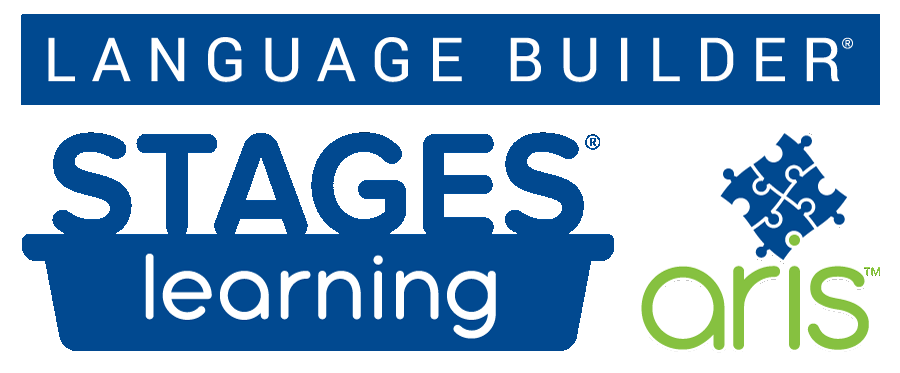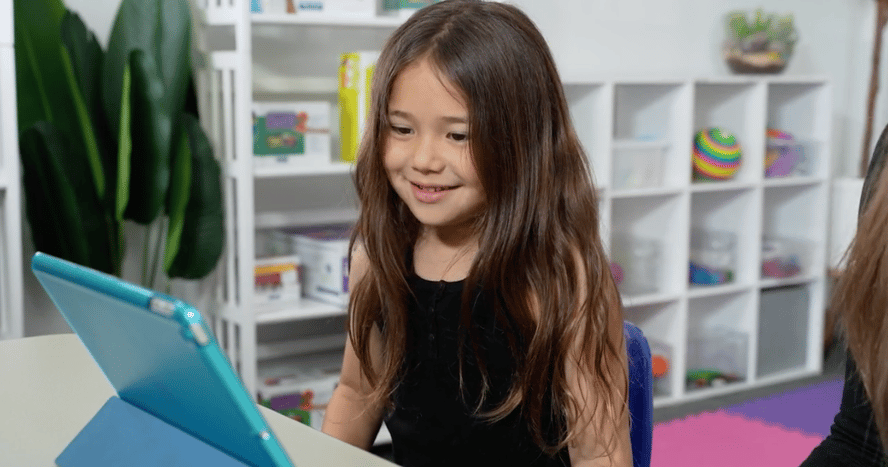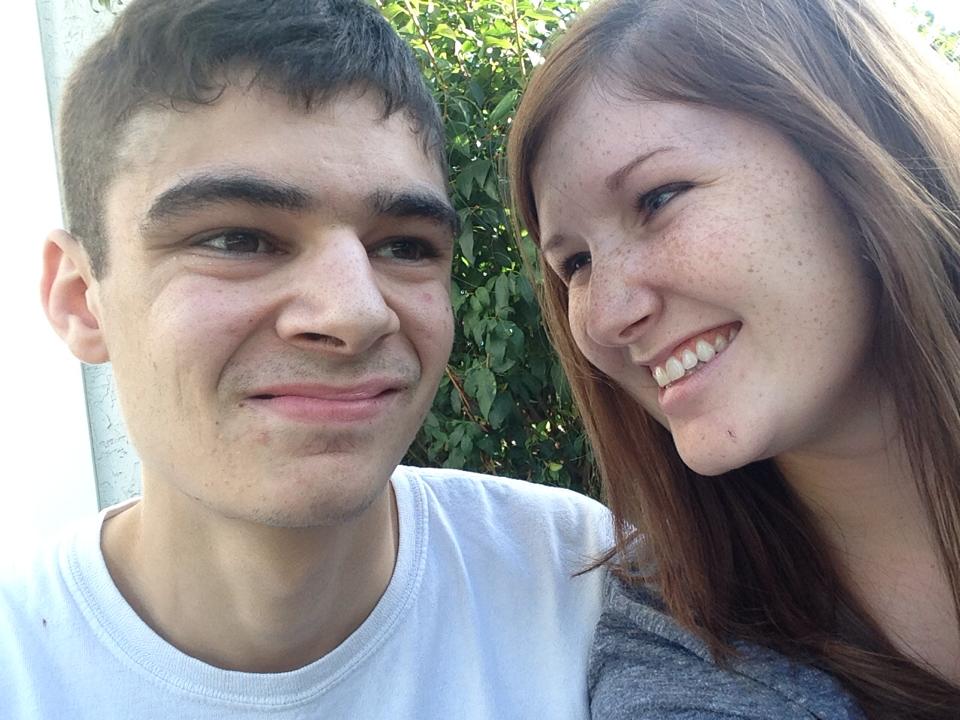
Using the ARIS® Academic Readiness Intervention System With My Brother, Tommy. With ARIS, Skill Development Can Happen at Any Age
Early intervention is the prime advice for education and life skills in the autism community, but should intervention ever truly stop? Although clinics boom with students eight and under, people are starting to ask if all doors close with age or if they can remain available for the right key. My experience teaching in self-contained autism classrooms found that a big focus in the elementary years is on using verbal behavior assessments and the tools contained within ARIS. However, once a child reaches middle or high school, efforts increasingly shift to functional, vocational, life, and leisure skills.
Don’t get me wrong, that’s a necessary and natural shift, but as I’ve seen in a certain 29-year-old autistic person, opportunities remain to go back and pick up more functional skills that can help improve my brother’s long-term quality of life. Interacting with him had me asking myself, can ARIS work with older students and adults? Here are some takeaways and challenges I’ve had to consider in implementing the program with Tommy, for whom I serve as a co-guardian alongside my parents.
Being Realistic
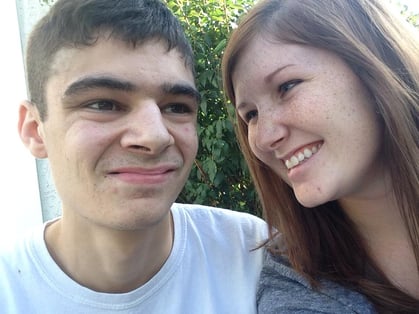 In my experience, older students can take a longer time to acquire a new skill, especially if whatever they’re currently using meets their needs. For example, Tommy incessantly touches my hair when he’s bored because it’s soothing to him and he doesn’t have any other waiting strategies to draw upon. Considering this as I started to collect baseline data with the ARIS kit, I recognized a need to pick and choose, to prioritize areas most important to improving my brother’s quality of life—the skills that would allow him greater independence.
In my experience, older students can take a longer time to acquire a new skill, especially if whatever they’re currently using meets their needs. For example, Tommy incessantly touches my hair when he’s bored because it’s soothing to him and he doesn’t have any other waiting strategies to draw upon. Considering this as I started to collect baseline data with the ARIS kit, I recognized a need to pick and choose, to prioritize areas most important to improving my brother’s quality of life—the skills that would allow him greater independence.
Of course, it would help to increase his receptive (understanding of what is being communicated) and expressive (ability to communicate) language skills, but I have to be realistic. My brother is deaf and lives in a group home with staff who can only try American Sign Language (ASL) after searching the web for one word at a time. His only true communication partners are my mother and me, plus a handful of people who know ASL at the workshop he loves to attend each weekday. As with most language skills, if you don’t use it, you’ll lose it. If Tommy doesn’t have opportunities to generalize and practice skills, then how can I possibly expect progress?
I also started to consider that there are not going to be any other individuals running ARIS with my brother, so the limited amount of time he has with me may be all the instruction he will receive—which does not bode well for skill acquisition since we only get together a couple of times a month. So here’s what I’m thinking for the skills most important for his quality of life that I can control in my setting.
Emotions
Time has shown us emotional regulation and emotion recognition are the biggest factors affecting Tommy’s ability to succeed at his workshop and to spend more quality time with extended family and other members of his group home community. When safety is at stake, that is always a top priority. Regardless of a starting point on a specific intervention, how can I expect generalization if I’m the only one working on it with him at my house? We must find ways to expand his team not only for his sake but because more success at my home could lead to better interactions with his little niece and nephew without worries of someone getting hurt. By prioritizing his understanding of emotions and continuing to hone his coping skills, Tommy can have greater control over his reaction to stressful situations.
Behavior Intervention Supports
The ARIS kit has some well-developed communication sheets that could be used for behavior intervention across his various settings—group home, workshop, and visiting family. While Tommy has a behavior plan as part of his Person Centered Plan (PCP), turnover in staff and his multiple transitions throughout each day make consistent implementation a real problem. As a result, his negative behaviors have increased in the past few years. I see reasons now to hope that working with the group home’s BCBA can increase open communication; using the ARIS behavior sheets and token economy system could enhance my brother’s safety and well-being across more settings.
Writing/Typing Skills
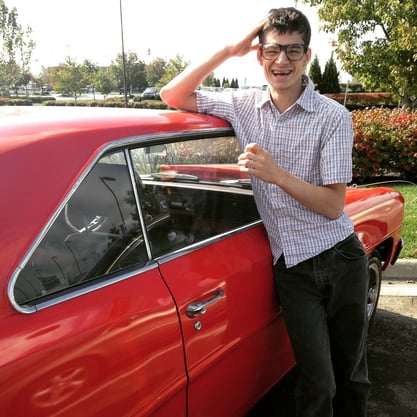 As children grow older and life skills gain greater focus, writing, counting, and more academic skills tend to take a back seat. But when I’ve seen what my brother taught himself to do on a keyboard, just driven by obsession, I realize this is an area where he could develop. As I thought about increasing his quality of life, I realized that if he was able to Google more things of high interest, he could seek out some of those highly preferred videos on his own. Right now, he knows how to type “fan” and he has millions of screenshots of ceiling-, handheld-, and any other imaginable fan saved onto his iPad. Given appropriate “parental control” filters, it could be incredibly motivating and appropriate for him to learn how to copy and type other preferred things like:
As children grow older and life skills gain greater focus, writing, counting, and more academic skills tend to take a back seat. But when I’ve seen what my brother taught himself to do on a keyboard, just driven by obsession, I realize this is an area where he could develop. As I thought about increasing his quality of life, I realized that if he was able to Google more things of high interest, he could seek out some of those highly preferred videos on his own. Right now, he knows how to type “fan” and he has millions of screenshots of ceiling-, handheld-, and any other imaginable fan saved onto his iPad. Given appropriate “parental control” filters, it could be incredibly motivating and appropriate for him to learn how to copy and type other preferred things like:
- Washing machine
- Dishwasher
- Lawnmower
- Cats (Who doesn’t love a funny cat video!?)
Social Stories
About 4 years ago, Tommy went on his first airplane trip and his eyes were opened beyond the little bubble we live in. Now, he loves to review pictures and books from a few big trips and invariably asks for another and more opportunities to see new things. With that comes some stress and uncertainty over new situations. I realized I could modify and adapt the social stories accessible through the STAGES® Learning website and within ARIS to help prepare him for more experiences and to live his life to the fullest.
Functional Routines
Of course, being 29 requires knowing some basic life skills like handwashing, toileting, showering, and area cleaning. He has come a long way in many of these spheres but continues to need support. As I’ve noted, some of his habits have been ingrained for a long time, but part of life is continuing to work on self-improvement, so I plan on using the ARIS lessons to help improve his hygiene and personal independence.
Unfortunately, the limited communication skills of Tommy and many others on the spectrum make for a vulnerable population particularly when it comes to abuse. I know generalization will be difficult for some of these skills, but to the extent I can push and pull others within his settings to also build on and practice, it will give me greater peace of mind to know that he can be safe on his own.
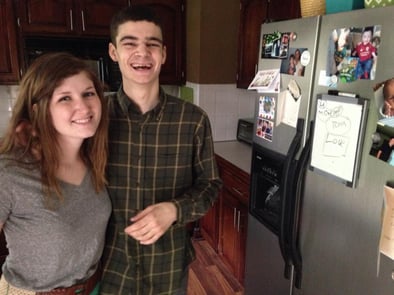 Sometimes for whatever reason, autistic students may not be able to access early intervention, or maybe they didn’t make the hoped-for gains in that early push. That doesn’t mean there’s no later hope—I’ve seen my students up through 21 years still learning new skills in public schools, which gave them a greater quality of life after graduation.
Sometimes for whatever reason, autistic students may not be able to access early intervention, or maybe they didn’t make the hoped-for gains in that early push. That doesn’t mean there’s no later hope—I’ve seen my students up through 21 years still learning new skills in public schools, which gave them a greater quality of life after graduation.
So can ARIS work for a 29-year-old? Come along with me on this journey as I find out, find and overcome the obstacles, and navigate detours. Learning doesn’t stop after public school ends, and I believe Tommy is worth making the extra effort. I’ll update you on my progress.
Do you have experience working with an older autistic individual who has low skill levels but has been able to make progress?
